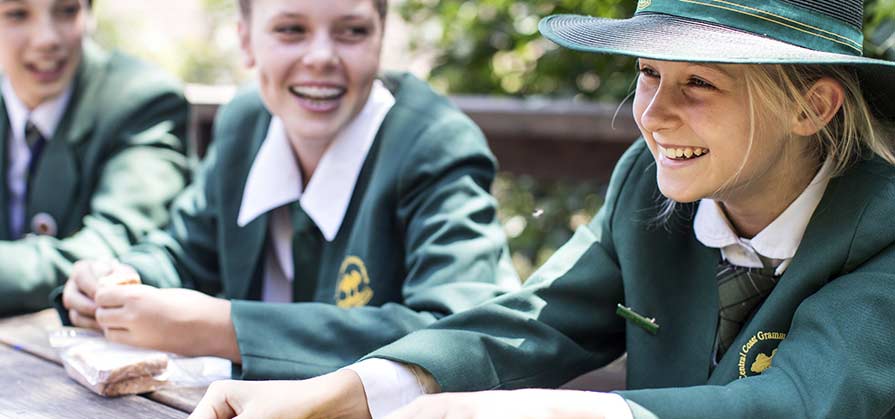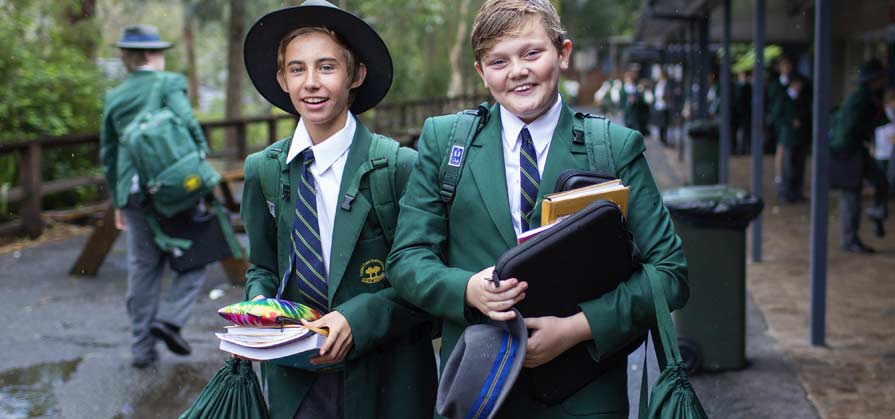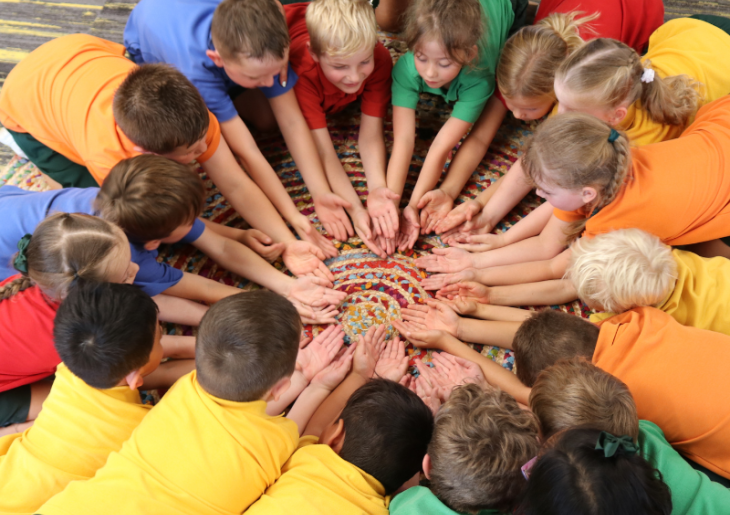Succeeding in Middle School
When children transition into their middle schooling years they’re often in the midst of puberty and it can feel like they’re beginning to pull away as their reference group shifts towards their peer group. It’s a time when children are trying to sort out who they are, peer pressure is intense and their connectedness to school can wane. High school students often have an air about them that parents are no longer needed, but they really do need you – albeit in a different way!
Your involvement and support is still very important at this time as students who have parents involved and interested in their education often achieve better results, lower dropout rates and are more likely to enrol in post school studies. When parents stay involved in secondary education children demonstrate improved social skills and behaviour and show a greater sense of competence.

Here are some handy tips you could try to help your children transition to middle school.
Limit comparisons of children
One of the joys of being a teacher is the fact that no two students are the same. It’s clear that each child has their own strengths and weaknesses with their own talents and challenges. Parents will often compare their child to others as a way of motivating their performance or interest in a particular area. Whilst parents don’t aim to negatively affect their children, comparisons can place unnecessary pressure on them, lower their self-esteem and demotivate them. All children have different interests, develop at different rates and have diverse talents. Focus on your child’s strengths and be realistic about your own expectations of their performance.
Get involved with the school community
Try to get involved in school events – even if you are met with protests that you don’t have to go and no one else’s parents are going. Go anyway! It’s a great way to meet and connect with other parents and a good way to casually get to know your child’s friends, teachers and peers.
Try to attend Parent/Teacher conferences and meet as many of your child’s teachers as possible. Talk to them about your child and ask what you can do to support their learning at home. Children can also benefit from being included in these meetings. If they’re struggling in a subject or in other areas, you should feel comfortable in talking to the teacher about it. Teachers appreciate knowing when assistance is required – even in high school! Don’t limit communication to the times there is a problem though – it’s nice to hear the good things too!
Colour coded system to assist with organisation
High school students are expected to be more independent and manage their assessments themselves but as they transition to high school they might find it difficult to keep track of all their belongings for numerous subject areas. Using colour coordinated folders and notebooks at home is a great way to help keep materials and assessments for different subjects organised. If children can organise their materials, their mind will follow!
Empower your child
Empower your children to think and be more responsible for themselves both at home and with their school work and school organisation. At times it might be faster to do things yourself than wait for them to complete a task, but having everything done for them means they do not learn independence. Why not get them to pack their own lunches, organise their own uniforms and set their own study schedules.
Let them make mistakes
You are your child’s first and lifelong teacher. Making mistakes is a natural and essential part of life. Everyone makes mistakes so when you make a mistake, use it as an opportunity to demonstrate how to deal with them. Children will come to understand it is not the end of the world and they can and will cope when they stumble.
As children transition to middle school, they will be required to think more independently. Allow them to make choices, decisions and develop solutions to problems on their own. Don’t foresee and fix every looming situation and deprive them of the opportunity to fail, feel uncomfortable or experience anxiety. It is through these occasions children grow and build resilience and in some cases make discoveries and innovations.

Take an interest
Ask your child about his/her classes, teachers and other activities outside of class time today. Clever questioning can help. Ask ‘Which class excited you the most today?’ rather than ‘How was school today?’ It might just get your child thinking and be the difference between a child who unplugs at the end of the day and one who continues reflecting on what they learned. Give them the kind of feedback that acknowledges and respects their feelings so they know you are really hearing them. Don’t be disheartened if you’re met with one word responses initially, once the means for dialogue are established, you’ll be surprised what children are happy to share and discuss.
Literacy and Mathematics in the home
Parents may feel intimidated by the thought of helping their child with their Mathematics homework, but using everyday situations in the home to make math more accessible is just as important. Capitalise on examples where math is useful, especially the kinds of calculations adults do daily like measuring ingredients, managing sums of money and working out distances. Children will see the practical applications of what they are taught at school and realise learning matters in life.
Parents can encourage literacy learning by supporting children in their desire to read the things that interest them whether that be novels, comics, magazines or even websites.
Friendship groups
Undoubtedly, friendships are so important to high school students. It’s easy for parents to feel alarmed if you find your child starts the year in a class without their friends. Embrace it and be encouraging of your child breaking out of social comfort zones and making new friends beyond their past friendships. It’s an opportunity for your child to learn to talk to new people, develop their social skills and broaden their social circle.




